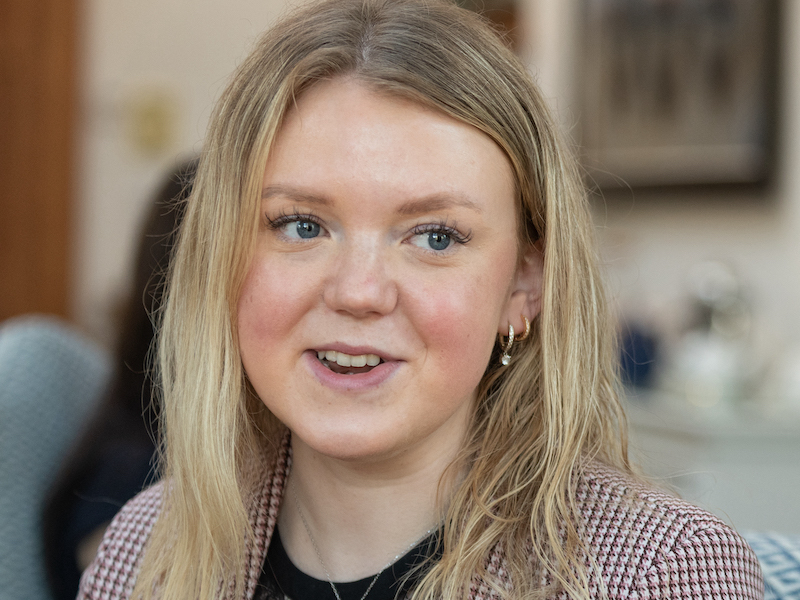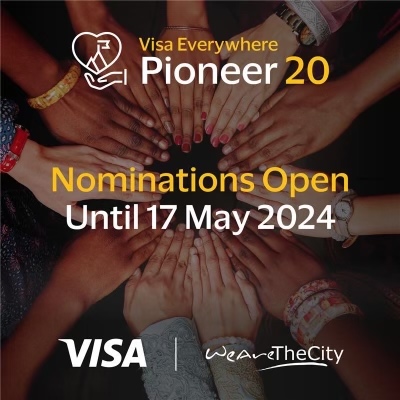
Tell us a bit about yourself, background and your current role:
I grew up in a rural crofting community in the Outer Hebrides and while it’s common for those born in the Hebrides to make it their forever home, by my late teens I was yearning to begin my University career.
After attending a Sutton Trust Summer school at the University of St. Andrews, I was determined to study there and, upon receiving my Higher exam results, I was delighted to receive an offer, which I accepted instantly. The following autumn, I began my university experience where I embarked on modules in Economics, and German and decided to Major in Management.
During my final year of University, I came to learn of the world of investment management at an event arranged by Future Asset’s parent charity, Didasko Education Company Ltd, and The Robertson Trust, which supports students experiencing financial or social barriers throughout the university. This gave me a compelling insight into the industry, confirming my desire to pursue a career in this sector.
My time in St. Andrews was invaluable and I remain grateful for the abundance of opportunities it gave me and the lifelong friendships I forged with people from across the globe. I now work in Edinburgh as a Client Reporting Analyst at the investment management firm Walter Scott & Partners.
Did you ever sit down and plan your career?
I can’t say I ever had a solid career plan as such and, to be honest, I didn’t have any idea of investment management growing up as that’s not an industry we’re exposed to in rural places like the Hebrides. It’s much easier for those that have contacts in the financial industry to navigate their way around it, so I felt extremely fortunate when I received the opportunity through The Robertson Trust and Didasko, to sign up for an Investment Management mentorship scheme. Having someone to chat to in an informal setting assisted me through the process of applying to and entering the industry, and truly helped me make sense of it all.
I certainly hope that my own experience and career path will inspire girls interested in learning more about the world of investment management to realise that you don’t need to come from a particular background or have certain life experiences to enter the industry and there is now an abundance of support available to help you gain access to this career
Have you faced any challenges along the way?
As someone who was incredibly timid going from a school where I was in some instances the only pupil in class to such a prestigious university, I had a tendency to take the back seat as I felt out of my depth. With time, I realised that my class peers were not necessarily achieving higher grades than me, though were speaking with far more confidence and that’s what can alter your image entirely.
Now in my work, it’s not uncommon for there to be occasions where you’re the only female in the room. However, I feel that you should never allow that to set you apart from your male counterparts nor view it as a disadvantage by any means.
What has been your biggest achievement to date?
Based on my own personal experience, my biggest obstacle also prepared the path to my biggest achievements.
I feel that one of the fundamental barriers inhibiting young women from entering the field comes down to self-confidence. It’s important that young women don’t doubt their skills, abilities and talents and rather deem themselves worthy of the empowering and impactful work that a career in Investment Management can bring – and I am really proud to be able to say that I overcame my worries and insecurities to achieve what I have at work.
Due to my positive experience of working in investment management, I have every reason to feel optimistic about the future. It’s great that there are charities like Future Asset that introduce girls to the sector and it’s pivotal that these strong relationships between such charities and investment management firms continue to flourish.
What one thing do you believe has been a major factor in you achieving success?
I think a major factor was (and is) my determination to define my ‘own’ version of success. Success is incredibly subjective and will look different to everyone. Rather than comparing myself to others, I try to appreciate how much I have grown as an individual and how I can continue to improve from there.
But I don’t think I can fully answer this question without also mentioning the need to embrace opportunities. You can never be sure what opportunities may emerge from saying yes to new experiences. It’s much more rewarding to give something a go than avoiding the unfamiliar in fear of failure, rejection or any other anxieties – and it worked for me!
What needs to be done to support more women in the investment management sector?
Besides the great work the team at Future Asset do to inform young girls of the opportunities offered by the sector (thus improving diversity), I believe more could be done to showcase the array of different roles within the industry. There’s often a misconception surrounding investment management that everyone working in the industry must have exceptional mathematical skills and a degree in a certain subject, but that’s far from accurate. I think that if more young people understood the vast range of teams and departments within the sector, it could help support them in identifying where their strengths would lie and what role suits them best.
How do you feel about mentoring? Why did you choose to get involved as a mentor for schoolgirls?
Since a Mentorship Scheme was the main catalyst for my decision to pursue a career in Investment Management, I wished to become a mentor myself so that I could support younger generations in a similar situation to myself and support them in the industry.
If you could change one thing to accelerate the pace of change for Gender Equality, what would it be?
It does seem like at later stages in a woman’s career, females are often still confronted with pressures of family/home life and career progression. Men aren’t faced with the same expectations placed upon women to take as much time off or reduce their working hours to raise a family in the way that women are. I think that, if we could eliminate this, it’s likely we would see a far greater gender balance at more senior levels in the industry.
If you could give one piece of advice to your younger self what would it be?
As well as speaking up and getting involved, I’d have to say, “Embrace failure”. Dissect rejection in order to recognise areas for growth. It can be uncomfortable to reflect on your weaknesses, however, failure is something we all face and it’s critical that you approach this matter productively.
What is your next challenge and what are you hoping to achieve in the future?
I’m very excited about an upcoming business trip to Boston and New York in June, which will be a fantastic opportunity to experience a different business culture and connect with my colleagues based over there. I’m fortunate that my work is also encouraging rotations amongst other teams across the firm, so I look forward to the prospect of potentially spending time in other departments to further develop my knowledge of the industry and learn new skills in different areas.
Growing Future Assets Investment Competition is an annual competition challenging teams of girls in Scottish schools to research, analyse and pitch a company to a group of investment professionals. The competition aims to introduce girls to the world of investment, its operation, relevance, and impact, as well as the range of careers available within the sector.
Future Asset is supported by investment management firms in Scotland that are committed to informing young women about opportunities and improving diversity in the sector.







